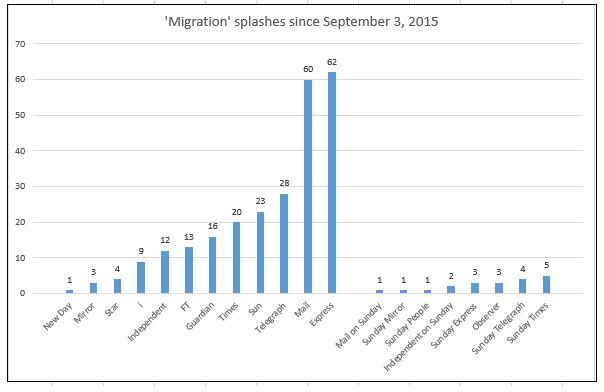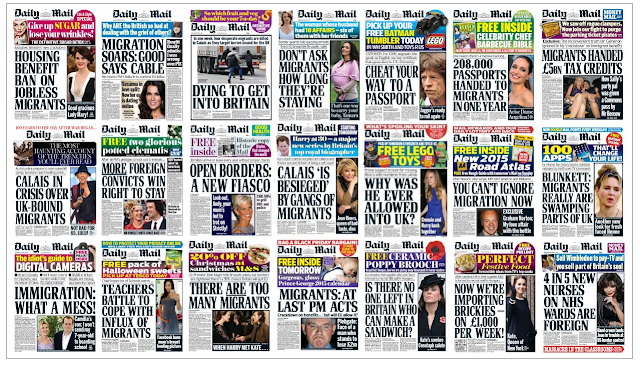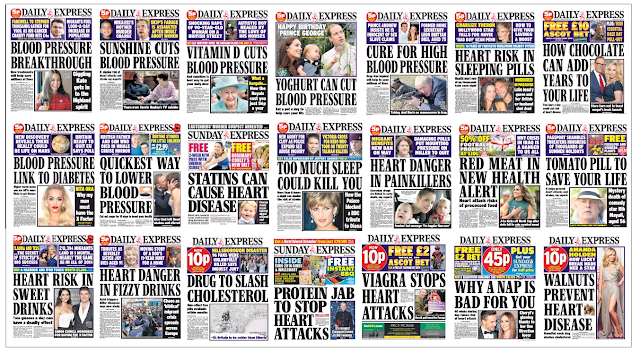Update Saturday 24 September:
 |
| Rod Liddle's brief Twitter timeline |
SubScribe is not the only commentator to have picked up on this column by Rod Liddle. And the response seems to have struck a chord with him.
He appears to have set up a Twitter account specifically to apologise for this piece, which he says was "crass, crude and poorly judged".
With only a handful of followers and one retweet, this apology (assuming the account is genuine) does not seem to have reached as wide an audience as it should.
His piece was spectacularly ill-judged - for the reasons spelled out below - but SubScribe applauds him for holding up his hand.
Yesterday, Christopher Hart of the Daily Mail produced a helpful list of "luvvies" who should not be allowed to express opinions.
SubScribe apologises for not noticing that Rod Liddle was simultaneously offering the same service in The Sun. So you may wish to add some names to your collection.
He, too, dismisses Amal Clooney (remember Hart called her a dubious poseuse celebrity lawyer), describing her as hugely irritating and smug.
Liddle's "posh luvvies and their tiresome wags" also include "moppety actress" Carey Mulligan, of whom he says "I'm ashamed you're British", but he saves the real bile for Emma Watson.
She gets a picture and section all to herself, which I reproduce in full:
Hermione Granger has been addressing the United Nations General Assembly. Nope, not kidding.
The actress Emma Watson, right, is a UN "Goodwill Ambassador". What's that, when it's at home? I haven't a clue.
Anyway, instead of telling them all the rules of quidditch or how to turn someone into a frog, she bored them all rigid with whining, leftie, PC crap.
Just like all actresses do if people are stupid enough to give them the chance.
Why do we indulge these luvvie slebs, most of whom know nowt? I don't object to them having views and expressing them. I just don't understand why we take them seriously.
I suppose they got Emma in because Angelina Jolie is a bit tied up with other stuff at the moment.
It may be old-fashioned, but it seems pretty basic journalism that if you don't know what you're writing about, you find out before you start typing.
SubScribe suspects that Mr Liddle knows exactly what a goodwill ambassador is - and that he is feigning ignorance for effect, rather as Donald Trump does when he says something preposterous, holds out his arms and adds: "I don't know."
But just in case, it may be worth explaining that goodwill ambassadors are appointed because they are famous. That's the point of them: to use their fame to get a message across that might otherwise be lost.
The first was Danny Kaye; perhaps the most famous (until Angelina Jolie) was Audrey Hepburn. She worked for years for UNICEF and oOthers who have followed in her footsteps include Tom Hiddleston, David Beckham, Lionel Messi, Simon Rattle and Queen Rania of Jordan. Pierre Cardin and Herbie Hancock spread the word for UNESCO; the singer Craig David flies the flag for the World Health Organisation in trying to prevent the spread of TB.
As to "knowing nowt", Watson was talking about sexual assaults on campus and gender equality at university, subjects on which - as a fairly recent graduate - she is probably well-qualified to speak.
And "boring them all rigid"? Watson is regarded as one of the UN's most valuable goodwill ambassadors and other reports of the event described the audience as "rapt" as she described the HeForShe campaign that she leads on behalf of the UN Entity for Gender Equality and the Empowerment of Women. (Was Liddle aware of the title - if so, how did he resist poking fun at it?) The aim is to persuade men to fight for equality and supporters include heads of state and the Secretary-General of Nato. More than a million men have made "practical commitments".
Meanwhile, across at the Express, Leo McKinstrey was also having a go. He lifted the phrase "tasteless stunt" from Monday's Mail to describe the Parliament Square lifejacket demonstration, then added his own twist, calling the organisers "immigration fanatics". His "luvvie" list was shorter: Juliet Stevenson, "privileged left-wing actor" Carey Mulligan (squawking here, rather than whining), and "left-wing privately-educated" Benedict Cumberbatch.
These columnists are entitled to their view that a tougher approach to the boat people might dissuade others from risking their lives at the hands of unscrupulous traffickers. They may feel justified in taking Angela Merkel's words this week as an acknowledgement that her "open doors" approach to, migration was flawed.
They are further entitled to say what they think, to put their views to a wider public.
But why do they think they have the right to tell anyone else to shut up?
Freedom of speech anyone?
 |
| A reminder of the Sun's view on free speech - for itself and for "luvvies" |
































































